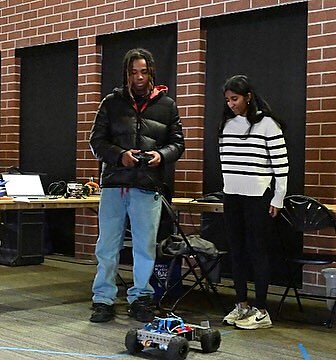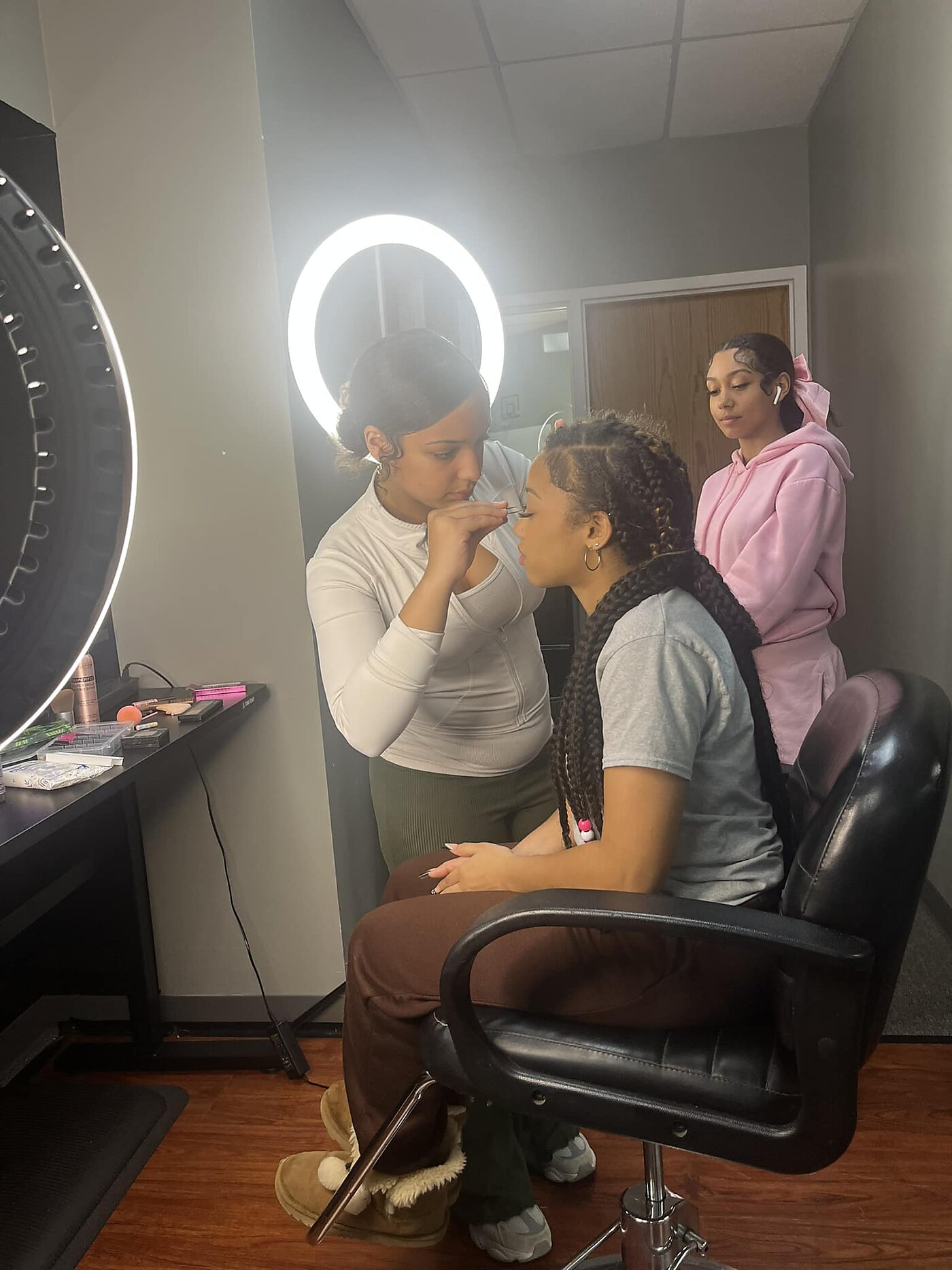“We realized there was really a need here for differentiating of learning,” explains Fig Newton, an entrepreneur in Des Moines, Iowa. He and his wife had extensive national and international experience in ministry and education. When they moved back to Des Moines and got involved with schools there, they saw “students from different cultural backgrounds, economic and social backgrounds that had different needs in their family, and they needed a non-traditional approach to education.”
So they founded Empigo Academy, a faith-based micro high school. The school’s name derives from the Greek word meaning “to impact,” reflecting its mission to create lasting change in students’ lives. Rather than pushing every student towards college, Empigo teachers help students explore possible career paths, including internships and apprenticeships. “We began to really just reach out to business leaders, community leaders, entrepreneurs, managers, directors, and we started cultivating relationships with them.” Through these connections, students have access to business tours, guest speakers, and mentorship.
Empigo focuses on three core components: career technical education, entrepreneurship, and technology. “Our goal is to create and foster personalized pathways for each student based off of their strength finders and on their hobby assessments,” Fig says. “What do they like doing and what are they strong at?”
The school operates on a four-day schedule from 8:00 a.m. to 4:30 p.m. “We simulate the workday. They have cubicles. They set up their own environment and teach them responsibility,” Fig notes. Students begin each day with breakfast, chapel, and devotion before diving into their core curriculum from 9:00 a.m. to 12:30 p.m.
All students study financial literacy. “One of the things we also highlight for their financial literacy is the everyday math,” Fig explains. “Not just checking and savings accounts, but we talk about mortgages and insurance. We talk about credit scores, debt-to-value, and loan ratios. We talk about APRs and credit cards and annuities and financial investments.”
The afternoon hours are where the school really distinguishes itself. Empigo takes what would be electives at most schools and offers opportunities based on each student’s strengths and interests. While the financial literacy lessons include entrepreneurship, some students are on a more intense entrepreneurship pathway where they are working to launch a business. Others are doing internships or apprenticeships. Students who want to attend college can work on enrichment. For students who are behind, there are tutors who can help with credit recovery. The school also embraces modern technology, teaching students about AI integrity, Excel, LinkedIn profile creation, resume building, and business pitch development.
“It’s all over the place based on the students and on their needs,” Fig explains. Sometimes the students leave for the job-training portion, but sometimes experts come in and teach students at Empigo in real-world spaces they create. For example, cosmetology students have stations with a chair, a sink, and other professional equipment. For the building trades, they have a whole setup with the necessary tools and supplies. “We’re constantly ideating, constantly evolving, and constantly moving, because that’s the way business in the world works. It’s like the second that you build it, it changes.”
Everything is intentional at Empigo. When one cosmetology student expressed interest in makeup artistry, the school arranged visits to three distinctly different venues: a news station, a fashion show, and a funeral home. “We want to think on all sides of the box—remove the boxes—and help them to discover,” Fig emphasizes.
This comprehensive approach has already yielded remarkable results. One graduate launched a successful business focusing on helping cancer patients and others with health-related hair loss feel beautiful again by doing eyelashes and eyebrows. Her passion stemmed from personal experience—her grandmother had lost her hair to cancer.
Emphasizing soft skills is another key aspect of the Empigo approach. “Eye contact, communication, being on time, critical thinking, problem solving, assessment. Those things that are transferable,” says Fig. He says research has found most people age 40 and older are not in the careers they expected when they were 18. “We just want to help build their foundations for things that are going to be applicable not only now, but also no matter what field you’re going into. We want to teach you how to study, teach you how to learn, teach you how to assess, how to network, the importance of relational equity.”
After graduating its first class of five, Fig expects around 25 students this year. His goal is 60 students by year five, 15 per grade level. The school operates in a 20,000-square-foot space within a larger business park, creating natural opportunities for internships and networking with neighboring businesses.
Iowa’s education savings account program has been very important for students attending Empigo Academy, but it doesn’t cover the full cost of attendance. Some students participate in innovative work-study programs where they earn part of their tuition through project-based work with industry partners. The school also relies on philanthropic giving and in-kind donations.
While debates rage about fixing conventional schooling, Fig and his wife simply went ahead and built something different. For the families who’ve chosen this path, it’s working. Students graduate with actual job skills, real-world experience, and—perhaps most importantly—confidence about their next steps.



